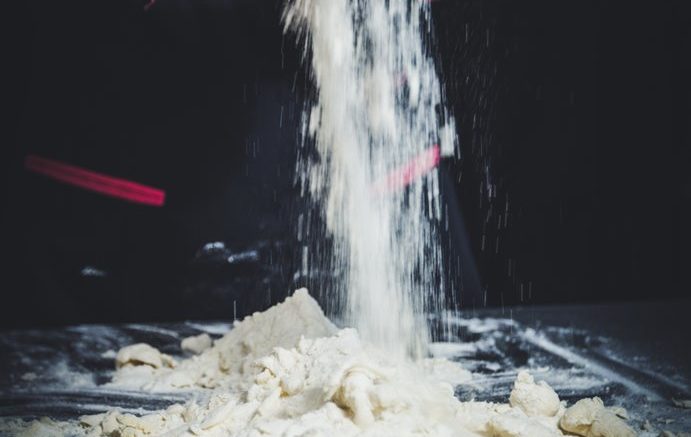Since talcum powder use has been associated with ovarian cancer, many women are seeking a possible alternative for their personal hygiene. Although the correlation between the use of talc-based cosmetic products and potential malignancies is still controversial, even the threat of potential risks is often enough to discourage many people from using it. Newborns, in particular, are especially at risk: the American Academy of Pediatrics recommends against using talcum in babies during diaper change because its small particles can end up inside their lungs causing respiratory problems. Talc powder, however, is exceptionally useful to absorb moisture, as well as to “refresh” genital areas and remove bad odors. There are many products available on the market that possess the same (if not better) activity, and most of them are sold at about the same price. What are then the possible non-talcum alternatives to keep this alleged toxic substance out of our bodies?
White Kaolin Clay
This clay, also known as White Cosmetic Clay, is a very common natural absorbent found in most wet cosmetics and skin care preparations. It’s used in deodorants, poultices, facial masks, scrubs, and soaps due to its vast versatility. It is the mildest of all clays and does not draw oil from the skin. It can be used on all skin types, including dry and sensitive ones and its fine and light powder help to clean and exfoliate the epidermis by gently stimulating circulation. It can be easily applied, and it’s one of the best bases for many baby powders. French Green is another clay which is often used instead of white one.
Cornstarch powder
Cornstarch is a natural product with it is used in cosmetic creams and makeups as a thickening agent and to provide a creaseless, matte finish. The starch is usually derived from oat, corn, rice or wheat flour. It has a soothing effect on the skin and helps keeping it dry by gently absorbing excess oil and wetness. Powder extracted from the root of the arrowroot plant or chickpeas are also used because their absorbency properties and texture are very similar to cornstarch.
Dried Herbs
Dried herbs are finely grounded into a thin powder which can be added or used to substitute many cosmetic powders. Some herbs such as chamomile and calendula blossoms possess natural skin-soothing properties, while others such as lavender buds and rose petals may help deodorizing and add a pleasant scent. Essential oils such as tea tree oil and neem oil are often added due to their alleged anti-inflammatory and antibiotic properties, and most of them are considered safe to be used in newborns.
Baking Soda
Baking soda is a great alternative to remove bad odors, especially if it’s sprinkled on feet and under the arms. This basic powder helps reduce sweat’s acidity and dries it up in no time. It’s safe, keeps the skin soft, and helps to disinfect toys, bottles, cradles, and other baby wares. Mixed up with warm water can be used to bath infants or clean stains on newborn’s clothes, too. It is also a popular ingredient for homemade dry shampoos.
